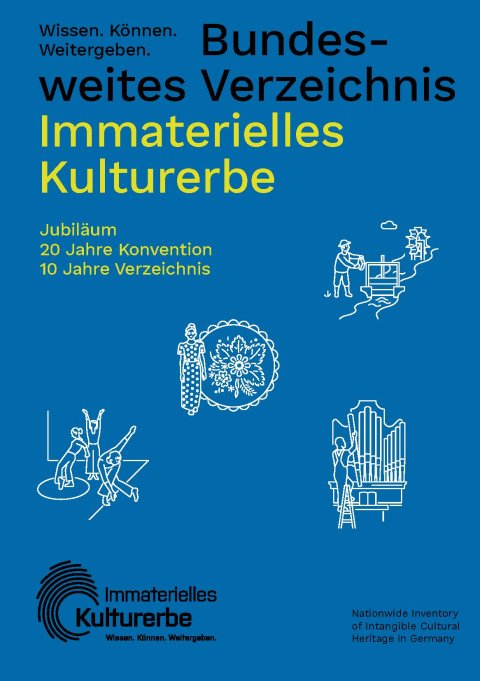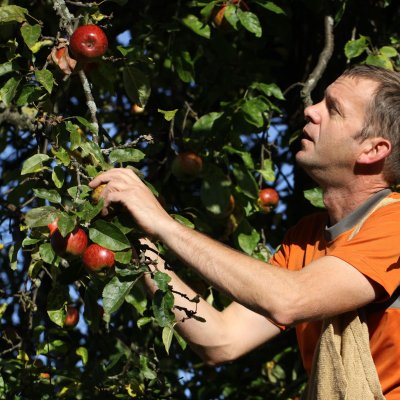Nationwide Inventory of Intangible Cultural Heritage
Traditional Meadow Irrigation in Franconia
The cultivation technique of meadow irrigation in the trench reservoir system has been practiced in Franconia for centuries. Traditional irrigation uses gravity-fed drip systems. Today, watering communities, together with volunteer groups and institutions, keep alive traditional irrigation and special water lifting techniques.

Facts & Figures
- Crucial date: Throughout the year
- Inscription: 2021
- Domain: Traditional craftsmanship, knowledge and practice concerning nature and the universe
- Where to find: At the Rivers Rednitz, Regnitz and Wiesent in Franconia
Traditional irrigation also ensures high agricultural yields in the arid regions of the Central Franconian Basin. The sandy, water-permeable and nutrient-poor soils of the Central Franconian Basin are only transformed into a green, species-rich and ecologically valuable meadow landscape through watering. Small-scale structures with high biodiversity develop from the alternating wet meadows. This contributes to the revitalization of the river valley cultural landscape. The successful settlement of storks illustrates the connection between agricultural cultivation techniques and nature.
Water meadows and water wheels
The water meadows are areas of different sizes on the Rednitz, Regnitz and Wiesent rivers and in their side valleys. They are irrigated by the watering communities based on traditional rules and techniques using ditch and weir systems. In Franconia, this also includes seasonally operated water scoop wheels driven by the current. Their annual assembly and disassembly also preserves knowledge of historical timber construction techniques.
Traditional irrigation techniques require specific knowledge and skills that have been handed down over generations, covering all natural and technical factors. Specific technical terms have been developed for all matters relating to irrigation and cultivation. Industrialisation has replaced traditional irrigation techniques in many regions. In Franconia, agricultural cultivation techniques have survived where the practical implementation has been adapted to current conditions.
The cooperative form of organisation and the sponsorship scheme of the water wheel community make it possible to pass on all the necessary techniques. They also benefit from cross-border knowledge through a European network. Finally, the water meadows are important local recreation areas in the Greater Nuremberg-Fürth-Erlangen area.



